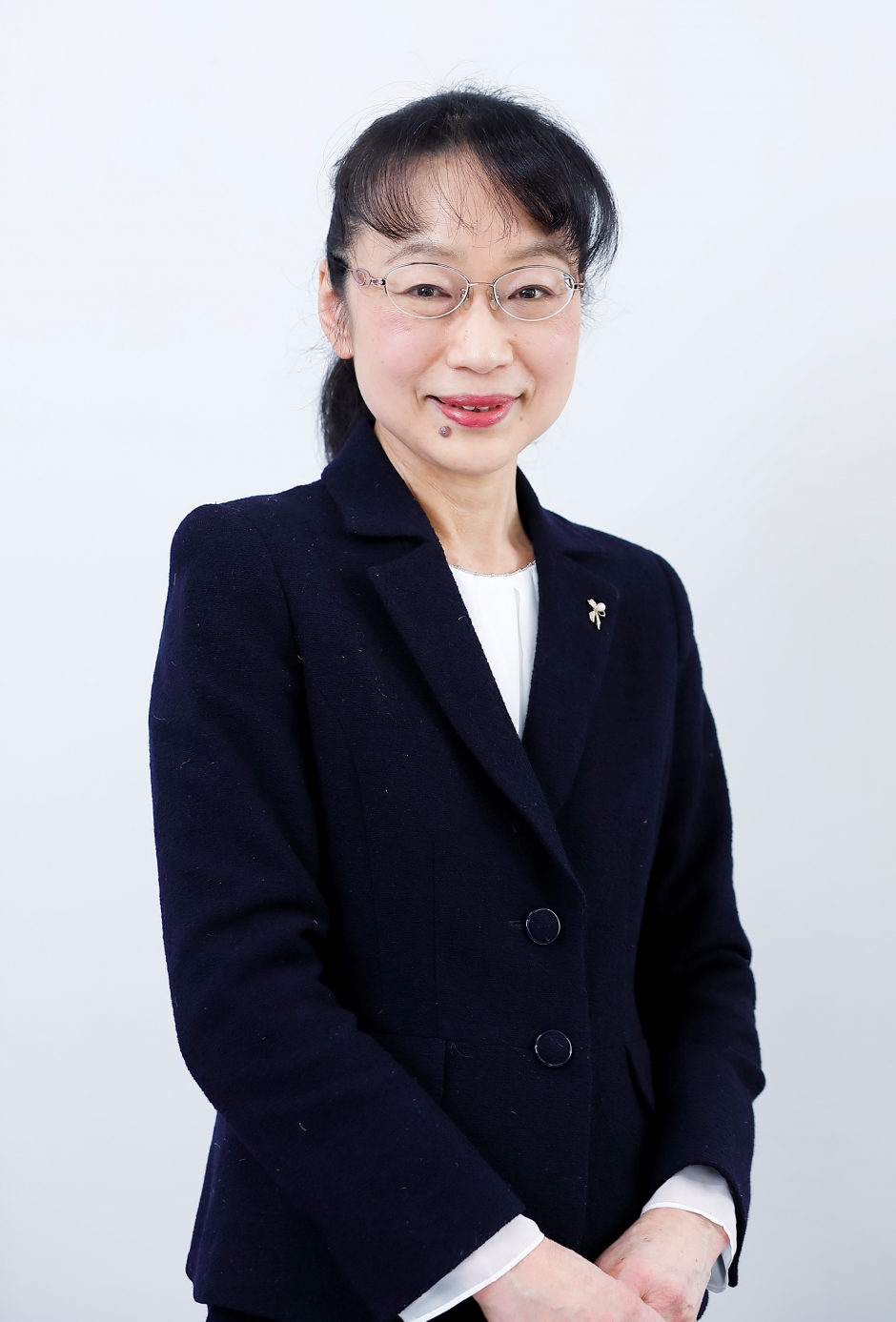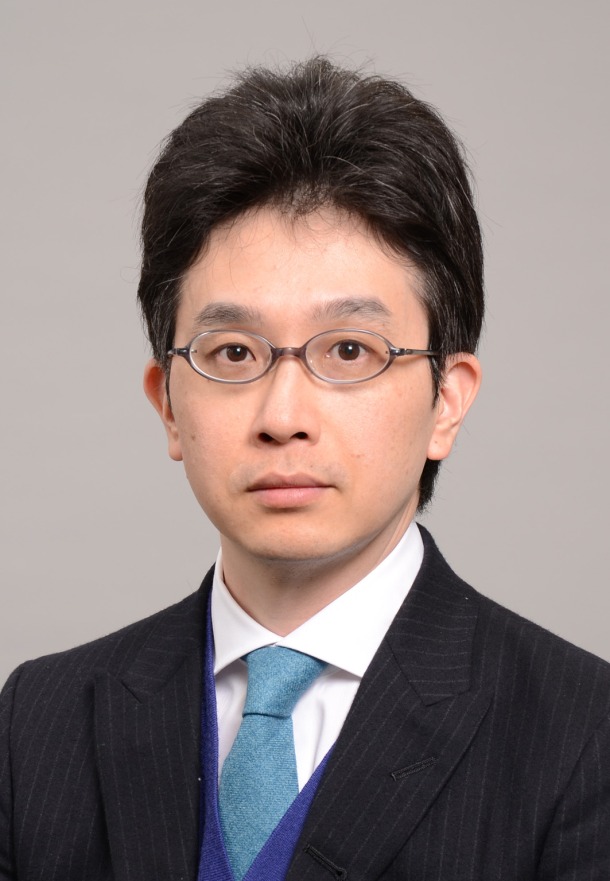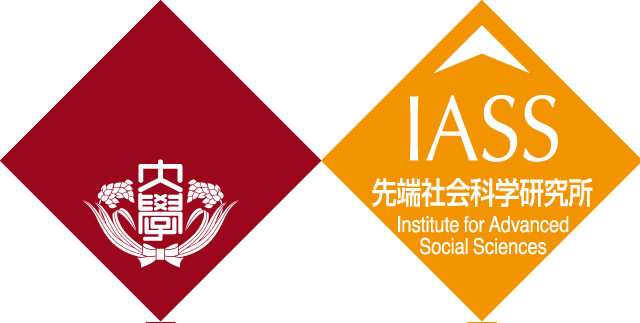Greeting from the Director
Director's Message
Director Ayu Washizu

Many answers are required from modern social sciences.
Social science is necessary to find global solutions to the growing problems of social inequality and discrimination. Social scientists are involved in uncovering measures urgently needed to mitigate climate change, as well as changes to adapt unavoidable climate change. Social sciences are at the front of the human response to the ever-evolving information and communication technology (ICT) that will cause digital transformation (DX) by fundamentally changing lifestyles and ways of doing business. During such large societal changes, the question “Is our society what it should be?” should be clearly answered by the social sciences.
The Institute for Advanced Social Sciences (IASS) aims to address these questions by accumulating important social science research in all fields and disseminating the results. That research is then promoted with keywords fusion at the border areas of social science (interdisciplinary), cooperation between research activities and social practice (practicality), and global orientation toward the international community (internationality).
IASS was established in March 2016 and is the newest affiliated research organization at Waseda University. Taking advantage of the institute’s youth and drive, we are now tackling the most important and fascinating issues faced by social science.
The IASS has four divisions, some of which consist of several additional project research groups.
The Division of Global Issues has project research groups devoted to four areas: exploring the formation of social science, along with philosophy, history, and ideological history in Europe since the early modern period; discussing measures to address the economic aspects of environmental problems in collaboration with related sciences; collaborating on data science in various fields on computer platforms; and empirical analysis of the mechanism behind political decision-making processes.
The Division of Social Design has five project research groups with the following foci:: practical countermeasures for various transformations in society as a whole or in a community; how the legal system can be used to eliminate social discrimination; how data can be used to support public interest while protecting personal information; and the discussion of research ethics centered on medical research and the development of educational programs.
The Division of Contemporary Japanese Studies is conducting research that reconsiders Japanese history and cultural studies from the perspective of Asia as a whole.
The Division of Integrated Social Sciences plays a role in integrating research that is likely to fall into specialized differentiation.
We will continue to contribute to society by tackling the most needed cutting-edge social science issues at any given time, including interdisciplinary, practical, and international work. We aim to create a base that can send out excellent human resources who will lead the next generation all over the world.
Associate Director's Message
Associate Director Kei Yoshida

In “On the Ways of Thinking,” Masao Maruyama, the historian of Japanese political thought, once compared the state of European scholarship with that of Japanese scholarship, and claimed that the former is sasara-style while the latter is takotsubo-style. With this claim, Maruyama intended to argue that the former has a common root, but the latter does not. Furthermore, he questioned the state of Japanese social sciences, which had to accept European sciences in a specialized form. If one thinks about it, one realizes that problems to be studied and solved by the social sciences transcend the boundaries of academic disciplines. In this sense, the social sciences must seek integration and
interdisciplinarity.
The Institute for Advanced Social Sciences (IASS), an affiliated research institute of the Faculty of Social Sciences, conducts research activities based on the three principles of “integration,” “interdisciplinarity,” and “application” of the social sciences, with the task of “show[ing] how various intractable issues in 21st century global society, which could not be solved with the current academic paradigm, can be resolved.”
In addition to the four divisions of Global Issues, Social Design, Contemporary Japanese Studies, and
Integrated Social Sciences, the IASS has established two new divisions of priority research areas:
Carbon Neutrality and Global Asia. The Division of Carbon Neutrality aims at contributing to the
realization of a carbon neutral society from the standpoint of social science. The Division of Global
Asia aims to conduct interdisciplinary research on historical reconciliation and sustainable
development in Asia, a region of great political, economic, religious, and cultural diversity, and to
disseminate its findings to the world.
These activities are not only carried out by affiliated researchers and adjunct researchers who belong
to the IASS, but also by graduate students at the Graduate School of Social Sciences. The IASS
encourages them to actively participate in the activities. The IASS also intends to contribute to the
basic principles of the Graduate School: “comprehensive and interdisciplinary research and education
in the social sciences,” “higher education for the public,” and “training of researchers and
practitioners.”
Based on the above tasks and principles, the IASS will continue to strive for research and education.
